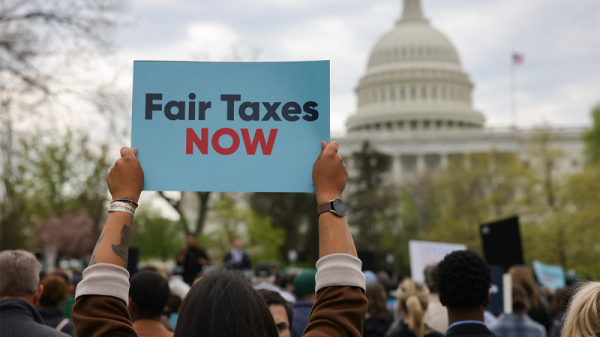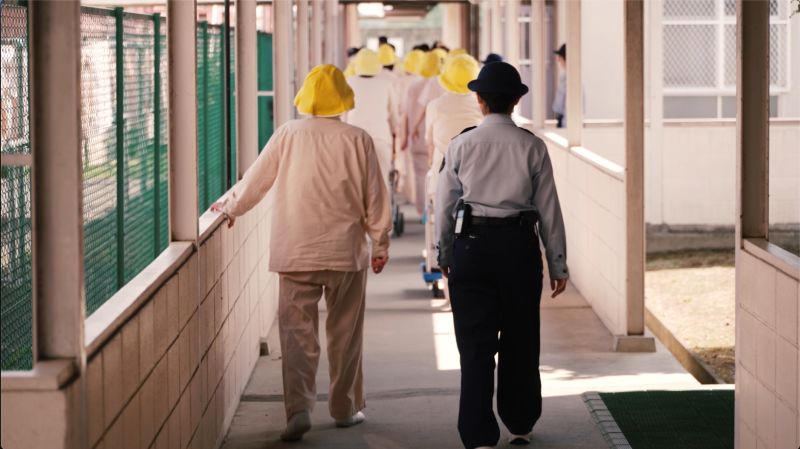The rooms are filled with elderly residents, their hands wrinkled and backs bent. They shuffle slowly down the corridors, some using walkers. Workers help them bathe, eat, walk and take their medication.
But this isn’t a nursing home – it’s Japan’s largest women’s prison. The population here reflects the aging society outside, and the pervasive problem of loneliness that guards say is so acute for some elderly prisoners that they’d prefer to stay incarcerated.
The women in Tochigi live behind bars and must work in the prison’s factories, but that suits some just fine.
Inside they get regular meals, free healthcare and eldercare – along with the companionship they lack on the outside.
One inmate, Yoko, 51, has been imprisoned on drug charges five times over the last 25 years. Each time she returns, the prison population seems to get older, she said.
Struggling in isolation
Akiyo knows the burden of isolation and poverty too well. This is her second stint in prison, after being previously jailed in her 60s for stealing food.
“If I had been financially stable and had a comfortable lifestyle, I definitely wouldn’t have done it,” she said.
When she committed her second theft, Akiyo was living off a “very small” pension that was only paid every two months. With less than $40 left and two weeks until her next payment, “I made a poor decision and shoplifted, thinking it would be a minor issue,” she said. Her prior conviction meant that she was imprisoned.
With little family support, Akiyo had stopped caring about the future, or what would happen to her.
Her 43-year-old son, who lived with her before she was imprisoned, often told her: “I wish you’d just go away.”
“I felt like I didn’t care what happened anymore,” she said. “I thought, ‘There’s no point in me living,’ and ‘I just want to die.’”
Theft is by far the most common crime committed by elderly inmates, especially among women. In 2022, more than 80% of elderly female inmates nationwide were in jail for stealing, according to government figures.
Some do it for survival – 20% of people aged over 65 in Japan live in poverty, according to the OECD, compared to an average of 14.2% across the organization’s 38 member countries. Others do it because they have so little left on the outside.
“There are people who come here because it’s cold, or because they’re hungry,” said Shiranaga, the prison guard.
Those who fall ill “can get free medical treatment while they are in prison, but once they leave, they have to pay for it themselves, so some people want to stay here as long as possible.”
Can Japan fill the gap?
Across Japan, the number of prisoners aged 65 or older nearly quadrupled from 2003 to 2022 – and it’s changed the nature of incarceration.
“Now we have to change their diapers, help them bathe, eat,” Shiranaga said. “At this point, it feels more like a nursing home than a prison full of convicted criminals.”
“Even after they are released and return to normal life, they don’t have anybody to look after them,” she said. “There are also people who have been abandoned by their families after repeatedly committing crimes, they have no place to belong.”
Authorities have acknowledged the issue, with the welfare ministry saying in 2021 that elderly inmates who received support after leaving prison were far less likely to re-offend than those who didn’t. The ministry has since ramped up its early intervention efforts and community support centers to better support vulnerable elderly, it said.
The Ministry of Justice has also launched programs for female inmates that provide guidance on independent living, substance addiction recovery, and how to navigate family relationships.
The government is now considering proposals to make housing benefits accessible to more elders, with 10 municipalities across Japan already testing initiatives to support elderly people with no close relatives.
But it’s not clear whether that will be enough, in a country with one of the world’s longest lifespans and lowest birthrates.
The elderly population is ballooning so fast that Japan will require 2.72 million care workers by 2040, according to the government – which is now scrambling to encourage more people to enter the industry, and to import foreign workers to fill the gaps.
That’s evident in Tochigi, where officers “actively ask (inmates) with nursing qualifications to provide nursing care” for other elderly prisoners, Megumi said.
Yoko, the 51-year-old inmate, is one such caregiver, having gotten her qualifications during her last sentence. Now, when there aren’t enough prison staff caring for the elderly, she helps other inmates bathe, change their clothes and move around, she said.
All the while, prisons continue filling up with white-haired inmates.
“Being alone is a very difficult thing, and I feel ashamed that I ended up in this situation,” she added. “I really feel that if I had a stronger will, I could have led a different life, but I’m too old to do anything about it now.”







































